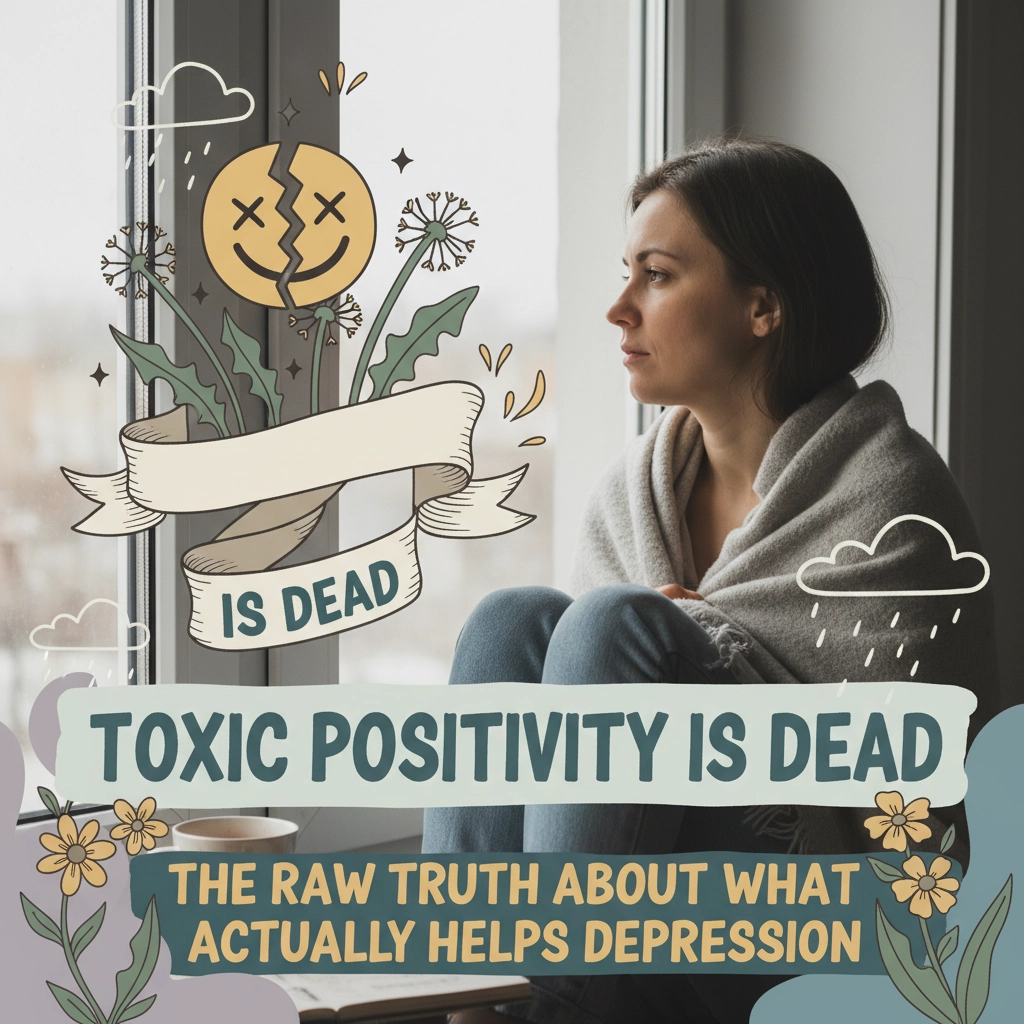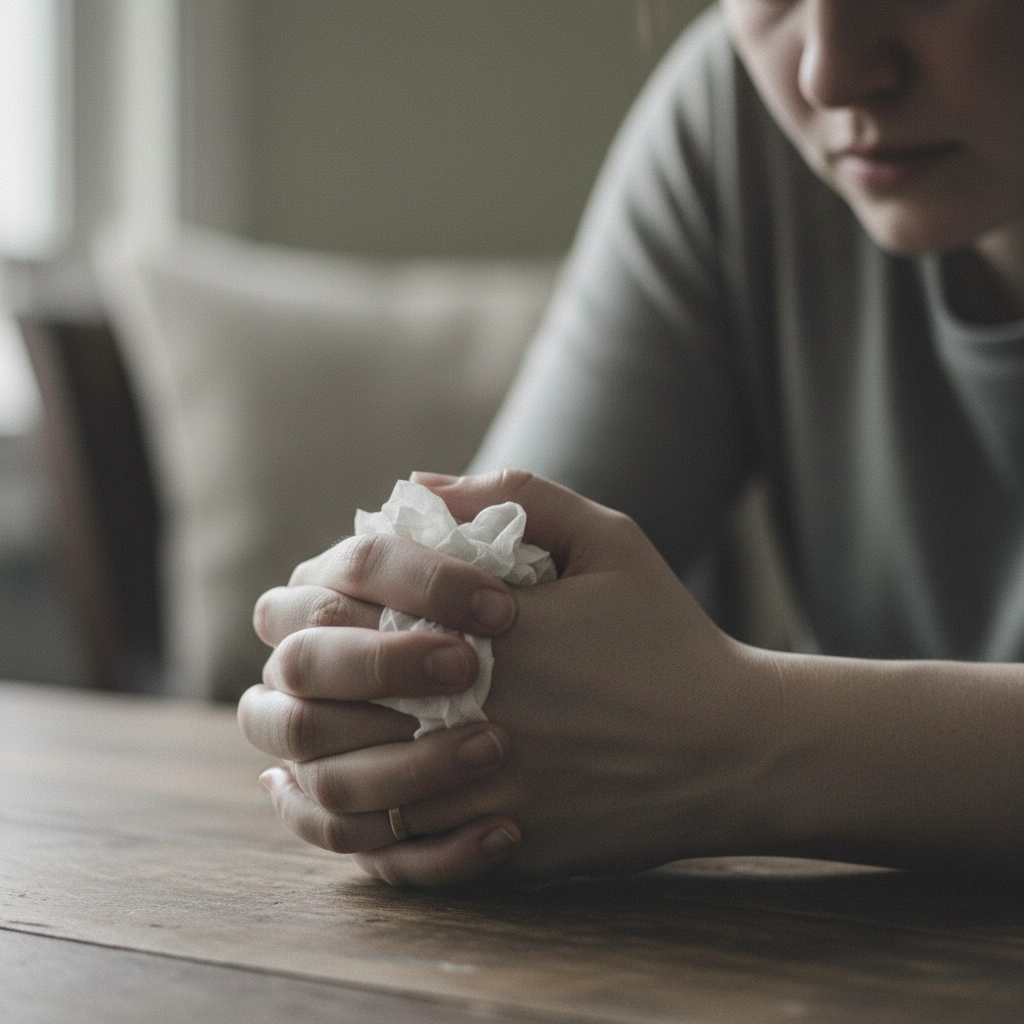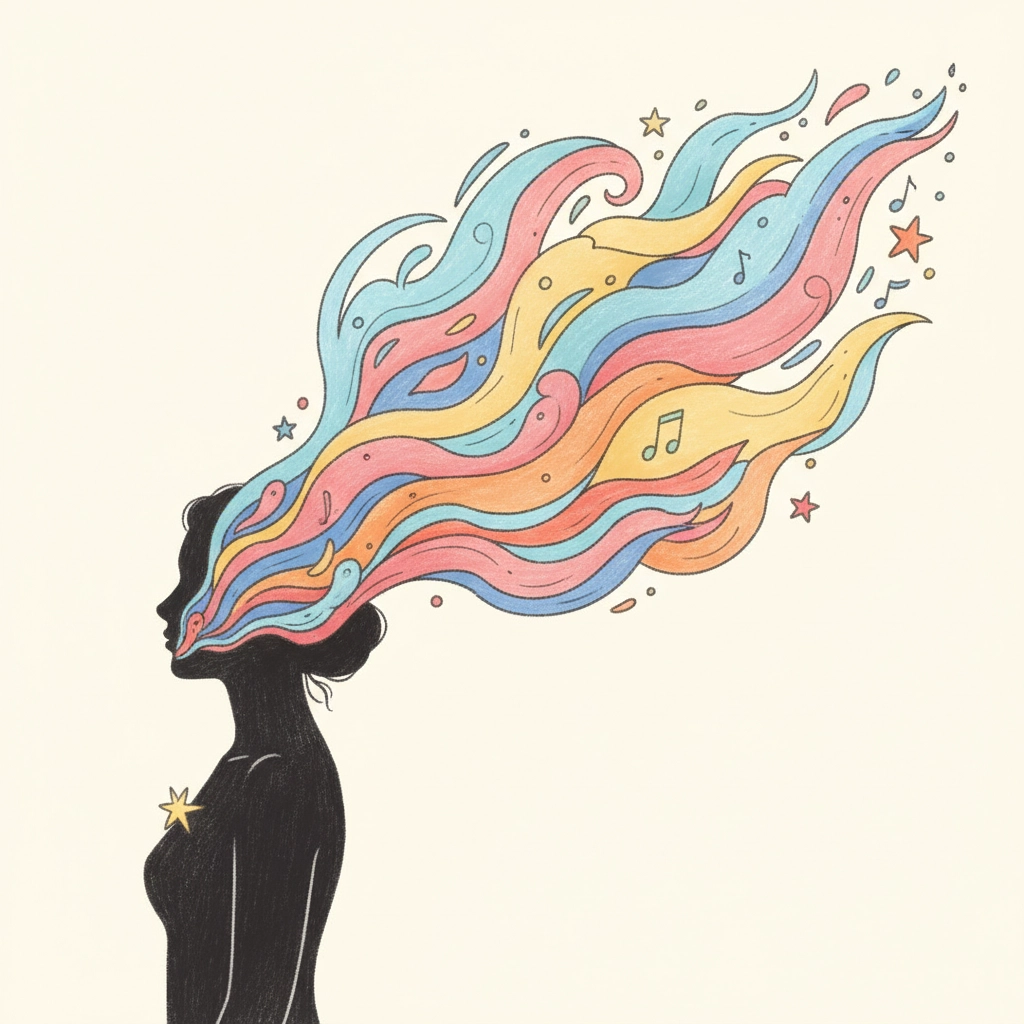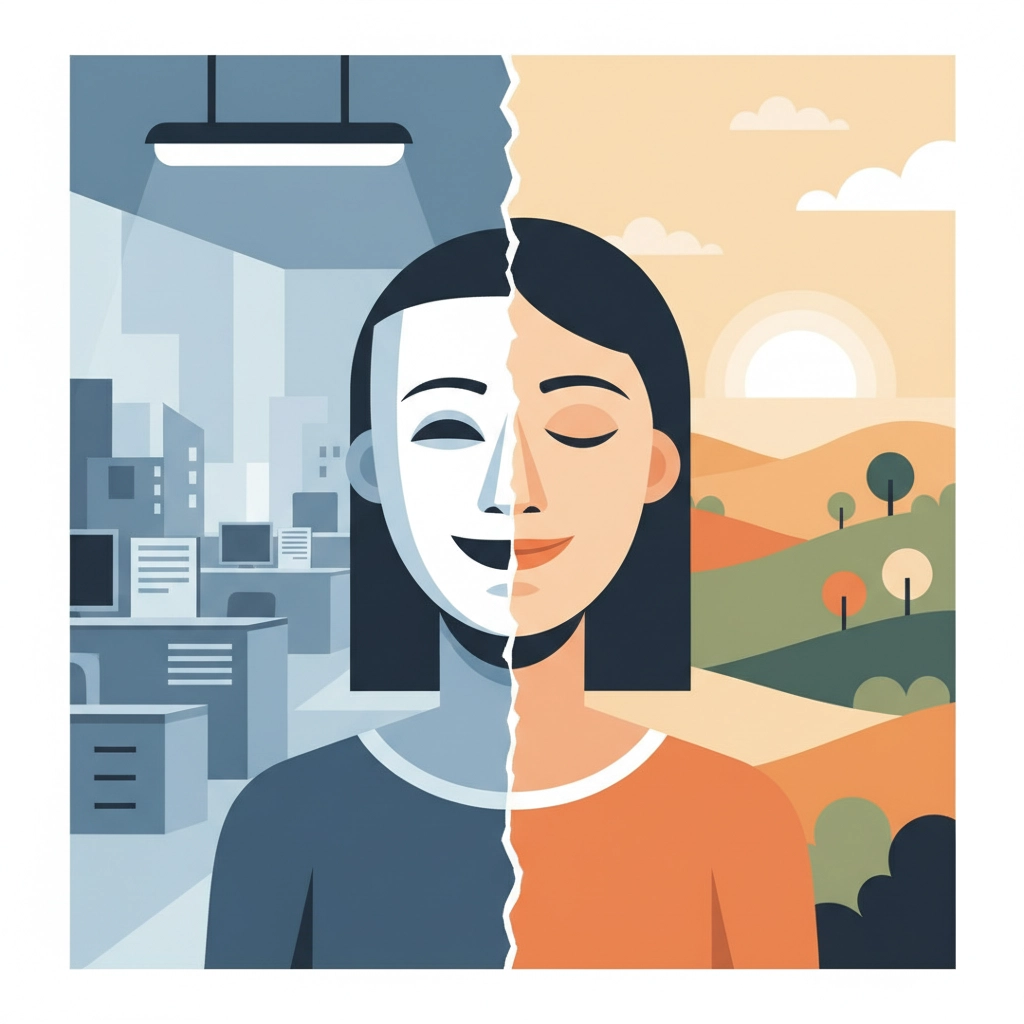Toxic Positivity Is Dead: The Raw Truth About What Actually Helps Depression

I'm so fucking tired of being told to "look on the bright side."
You know what I'm talking about, right? That friend who responds to your honest admission of struggling with depression by saying "just think positive thoughts!" Or the family member who hits you with "everything happens for a reason" when you're literally in the darkest place you've ever been. It's everywhere: this relentless pressure to slap a smile on your face and pretend everything's fine when it's absolutely not.
This toxic positivity bullshit has had its moment, and I'm here to tell you that moment is over. We're done pretending that forcing ourselves to be happy all the time actually helps anyone. Because spoiler alert: it doesn't. In fact, it makes everything worse.
When "Good Vibes Only" Becomes Actually Toxic

Let me get real with you for a second. Last month was brutal for me. I'm talking about those mornings where getting out of bed feels like climbing Mount Everest, where every small task feels overwhelming, and where that voice in your head won't shut up about how you're failing at everything. And you want to know what didn't help? People telling me to "just be grateful" or "focus on the positive."
It's like telling someone with a broken leg to just walk it off. Would you do that? Of course not. So why do we think depression: an actual medical condition: can be cured with motivational Instagram quotes?
The research backs this up, and it's pretty damning. Studies show that when we suppress our emotions and force fake positivity, we actually end up with increased anxiety, more depression, and worse overall mental health. One study found that people who tried to hide their negative emotions ended up thinking more negatively because they weren't allowed to express themselves honestly. It's this weird psychological boomerang effect where the thing you're trying to avoid comes back harder.
But here's the part that really gets me: when we judge ourselves for feeling sad, angry, or scared, we create what psychologists call "secondary emotions", basically shame on top of our original pain. So now instead of just dealing with depression, we're also dealing with the shame of having depression. Who came up with this system? It's like emotional double jeopardy.
The Science of Actually Feeling Your Feelings

I've been diving deep into the research lately (partly because I'm a nerd, but mostly because I needed to understand why traditional "positive thinking" was making me feel worse), and the findings are pretty clear. Accepting negative thoughts and emotions: not suppressing them: is linked to better psychological health, higher life satisfaction, and lower depressive symptoms.
There was this fascinating study during the Zika outbreak where pregnant women who suppressed their fears about the virus ended up having higher levels of fear later. The suppression created this vicious cycle where trying not to think about something made them think about it more. Sound familiar? It's like when someone says "don't think of a pink elephant" and that's literally all you can think about.
Even parents who tried to hide their negative emotions from their kids ended up feeling less authentic and emotionally worse. The research consistently shows that forcing yourself to hide negative emotions paradoxically leads to experiencing more negative emotions overall. It's like emotional whack-a-mole: suppress one feeling, and three more pop up somewhere else.
And get this: emotional suppression actually suppresses your immune system too. People who held back thoughts about emotional topics showed decreased white blood cells, the ones that fight off illness. So toxic positivity isn't just bad for your mental health: it's literally bad for your physical health too.
What Actually Helps (And It's Not What You Think)

So if positive thinking doesn't work, what does? This is where things get interesting, and honestly, a little counterintuitive.
The answer is emotional validation and acceptance. I know, I know: it sounds like therapy speak. But stick with me here. This means acknowledging that feeling sad, angry, scared, or overwhelmed is not only normal but actually healthy. These emotions exist for a reason. They're messengers, not enemies.
Healthy positivity: and yes, there is such a thing: doesn't exclude suffering. It doesn't try to paint over pain with pretty colors. Instead, it finds a way to hold space for both the hard stuff and the good stuff. It trusts that we can handle the full spectrum of human experience without breaking.
Here's the key difference: toxic positivity is about other people's discomfort with your pain. They need you to feel better so they can feel better. Healthy positivity, on the other hand, believes in your capacity to work through whatever you're experiencing, even when it's messy and uncomfortable.
Self-compassion is huge in this process. Instead of beating ourselves up for feeling depressed (which, let's be honest, we all do), we can learn to treat ourselves with the same kindness we'd show a good friend going through a tough time. Research shows this is vital for mental health and actually allows us to process difficult emotions without adding layers of shame.
The Real Work of Healing

I've been listening to a lot of Phoebe Bridgers lately (because honestly, who captures that raw emotional honesty better?), and there's this line in "Motion Sickness" where she sings about being "emotional motion sickness." That's what toxic positivity feels like to me: this constant motion away from authentic feeling that leaves you dizzy and disconnected from yourself.
Real healing means creating space to process emotions in real time, not avoiding them with false optimism. It means confronting situations rather than retreating into platitudes. If you're depressed because you're in a toxic relationship, the answer isn't gratitude journaling: it's addressing the relationship. If you're struggling because you're overwhelmed at work, positive affirmations aren't going to fix your workload.
This doesn't mean wallowing or getting stuck in negativity forever. Emotions are transient: they come and they go. But they need to actually move through us, not get trapped behind a wall of forced cheerfulness.
Professional support helps because good therapists create space for all emotions, not just the pretty ones. They don't try to talk you out of your feelings or convince you to see the silver lining. They help you understand what your emotions are telling you and how to work with them, not against them.
Where We Go from Here
The goal isn't to eliminate all negative feelings: that would be both impossible and unhealthy. The goal is to develop a different relationship with them, one that acknowledges their validity while building genuine resilience.
I'm not saying we should all become perpetually gloomy or that optimism is bad. General optimism can actually improve life outcomes. But forcing positivity in the face of genuine struggle prevents the emotional processing that's necessary for healing.
We can start small. When someone shares something difficult with us, instead of immediately trying to fix it or find the bright side, we can just listen. We can say "that sounds really hard" instead of "everything happens for a reason." We can hold space for both pain and hope to coexist.
For ourselves, we can practice noticing when we're pushing away difficult emotions and gently invite them back in. What is this feeling trying to tell me? What do I need right now? How can I be kind to myself in this moment?
The toxic positivity era is ending, and honestly, it's about time. We're learning to have authentic conversations about mental health, to normalize struggle, and to understand that healing happens when we stop running from our humanity and start embracing all of it: the messy, complicated, beautiful fullness of being human.
And that, my friends, is something actually worth celebrating.
Want even more on this topic? Michael recently did a whole Breathe N Bounce podcast episode about negative positivity and the real impact of toxic positivity on mental health. Listen to "EPISODE CXIII: NEGATIVE POSITIVITY" here: https://breathebounce.blogspot.com/2025/08/episode-cxiii-negative-positivity.html

